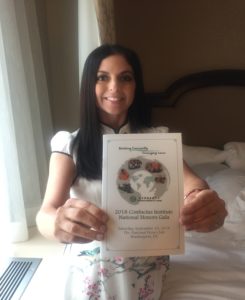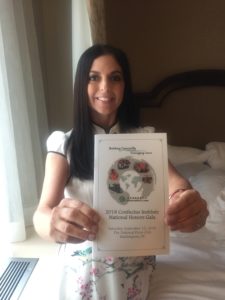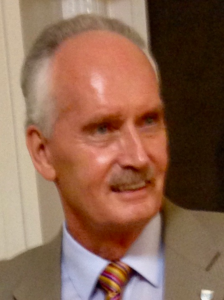A very old proverb teaches: “The mouth speaks what is in the heart.” My interpretation of that proverb is that language expresses the soul and spirit of a people. For that reason, I have always had a special inclination for languages. I have studied ancient Greek and Latin; modern French and German; I have had the opportunity to learn Arabic while teaching university students in Baghdad, Iraq. Through these experiences, I have come to appreciate how a culture and its people open up when you understand its language. For me, Chinese has been the pinnacle of language learning. It is ancient, vividly expressive, and spoken by more than one and one-half billion people.
I have come to appreciate how a culture and its people open up when you understand its language.
My first contact with the Confucius Institute was somewhat tangential. I took a two-part course through the Osher Lifelong Learning Institute at the University of Massachusetts-Boston, taught by Wanli Hu, Ph.D., comparing Massachusetts as the cradle of American values, education, and skills with Xi’an, the birthplace of Chinese civilization. Through Dr. Hu, I learned not only about the great history of Chinese culture, but also that the Confucius Institute had courses for people interested in learning the Chinese language.
At first, I was excited about the prospect; then I considered the challenge and commitment that was necessary to learn a new language and whether I was really up to the task. My actual engagement with the Confucius Institute began in January 2018.
The Confucius Institute offers a welcoming and supportive introduction to China, its history, culture, traditions, and language. My teacher, Lu Zhiying, (“Lu Lāoshì” as I call her,) has been enthusiastic, encouraging, and very patient. She has high expectations for my ability to learn Mandarin at the highest level, including learning Chinese characters.
Lu Zhiying has broadened my involvement in the Confucius Institute and Chinese culture. After just one month as a student, she asked me to help out with the Institute’s upcoming New Year celebration taking place at UMass Boston. I am often glad to help out setting up chairs, posting signs, handing out flyers, etc. “I want you to teach people who come to the celebration to make Chinese knots,” Lu Laoshi said. “And bring your wife, Linda.” Of, course I didn’t know what a Chinese knot was, nor how to make one! She showed me how to make one, gave me some threads, and said, “Practice.”
Needless to say, when the New Year celebration took place two weeks later, dozens and dozens of people, as young as six-years-old, and many much older than that became enthusiastic learners and owners of New Year good luck knots.
The Confucius Institute offers a welcoming and supportive introduction to China, its history, culture, traditions, and language.
The celebration program was so much more. It opened my eyes to the vast network of programs and participants in the Greater Boston area supported by the Confucius Institute. I met Grade 6 students who, like me, were beginning to study Mandarin. Since I had been a Chinese-language learner for just four weeks, I felt emboldened to utter such great phrases as “Ní hao”, “Ní hao ma?”, and “xièxie”!
During the program, I saw a CI student who had only nine classes stand on stage in front of nearly two hundred people, and recite a simple poem in Mandarin before a largely Chinese audience. Two other CI students performed a song. What encouragement and motivation!
The program put on that day by the Confucius Institute was a panoply of Chinese poetry, dance, music, and culture performed by students and professionals from many communities and nationalities celebrating Chinese culture and civilization.
Some people say the time to learn a language is when you are young. There is certainly merit to that statement, and I certainly encourage learning a language early. But I am seventy-five years old, and regrettably, cannot turn back the hands of time. However, when I knocked on the door of the Confucius Institute at UMass Boston and said I was interested in learning Chinese, no one said: “You’re too old,” but only “When would you like to start?”
When I said I was interested in learning Chinese, no one said: “You’re too old,” but only “When would you like to start?”
While my goals and story are personal, I do believe that my example will encourage others to begin the process of exploring a culture that is the four-thousand-year foundation of 1.5 billion people in today’s world, and the world of the future. I live in a community that has a rapidly growing Chinese population, so there is increasing opportunity to use my new language skill, and hopefully, our new neighbors will feel more welcomed to know that a person not of their culture appreciates them enough to learn and cherish its language. The language of the Confucius Institute is “Welcome!”

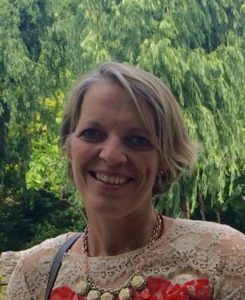 Dr. Monika Hoffarth-Zelloe has been a foreign language professor for more than two decades.
Dr. Monika Hoffarth-Zelloe has been a foreign language professor for more than two decades.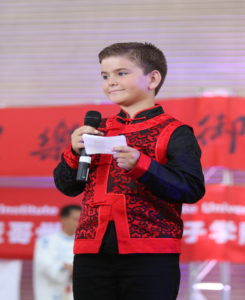
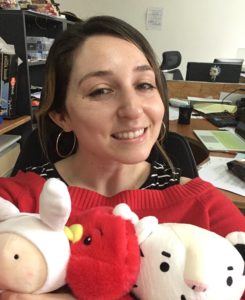 Kayla Raden is a high school biology and chemistry teacher from New Jersey.
Kayla Raden is a high school biology and chemistry teacher from New Jersey. Trinity Lewis, 16 years old, attends Omaha Northwest High Magnet School.
Trinity Lewis, 16 years old, attends Omaha Northwest High Magnet School.


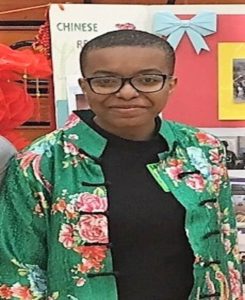
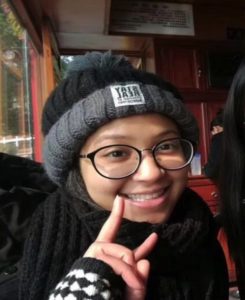
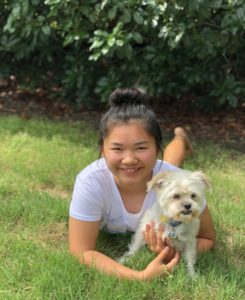

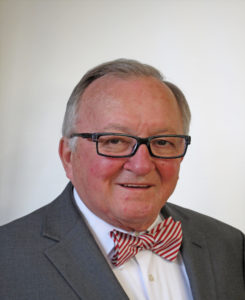 Douglas McDonald is a retired administrative judge from Boston, MA who has recently joined the Confucius Institute at the University of Massachusetts-Boston to tackle yet another language.
Douglas McDonald is a retired administrative judge from Boston, MA who has recently joined the Confucius Institute at the University of Massachusetts-Boston to tackle yet another language.
